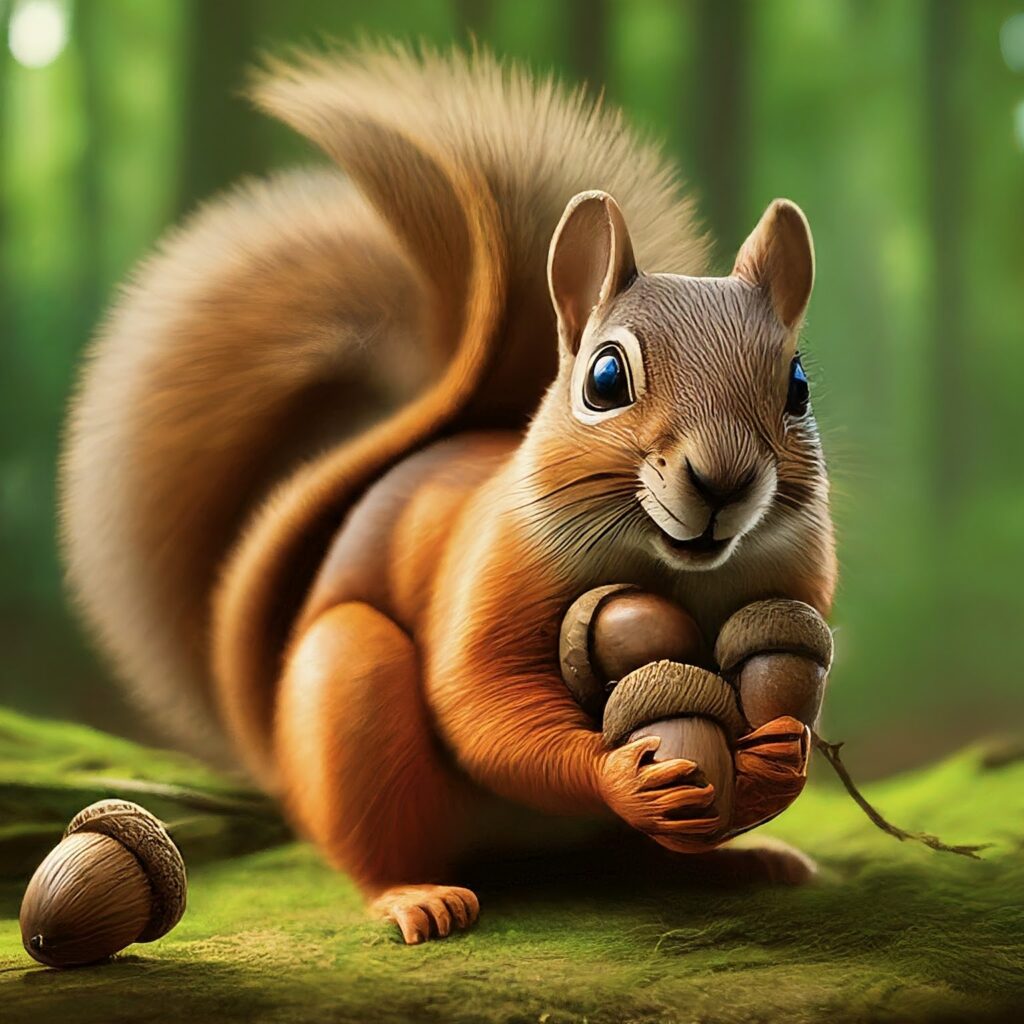The Greedy Squirrel’s Lesson in Sharing

Once upon a time in the cheerful Meadow of Plenty, there lived a busy little squirrel named Nutty. Nutty was known for collecting acorns and storing them in a cozy burrow. One day, as he was playing with his friends, he overheard a rumor about a legendary oak tree in the heart of the meadow. This tree, they said, bore the most delicious and golden acorns imaginable.
Driven by curiosity and a growing greed for more exquisite acorns, Nutty set off on a journey to find the legendary oak tree. Along the way, he encountered various challenges, but his determination and greed fueled his journey.
Finally, after days of searching, Nutty discovered the mythical oak tree. Its branches were indeed filled with the most beautiful acorns he had ever seen. Overwhelmed by greed, Nutty began to gather as many acorns as he could, ignoring the warnings in his heart.
As Nutty filled his cheeks with the golden acorns, he noticed the once lively meadow turning dull and lifeless. The other animals, who relied on the acorns for their food, were now left hungry and weak. Nutty’s friends looked at him with sadness and disappointment.
Realizing the impact of his greed, Nutty felt a deep pang of regret. He understood that his selfish desire had harmed the entire meadow. Determined to make amends, Nutty decided to share the golden acorns with his friends and replenish the meadow’s once vibrant energy.
Gradually, as Nutty distributed the acorns, the meadow began to thrive again. The grass became greener, and the flowers blossomed with renewed vigor. Nutty’s friends forgave him, and the meadow returned to its joyful state.
From that day on, Nutty learned a valuable lesson about the consequences of greed. He became a wiser and more generous squirrel, teaching others in the Meadow of Plenty that true happiness comes from sharing and caring for each other, rather than hoarding treasures for oneself. And so, the meadow remained a symbol of harmony, where the simple joys of sharing made life richer for everyone.